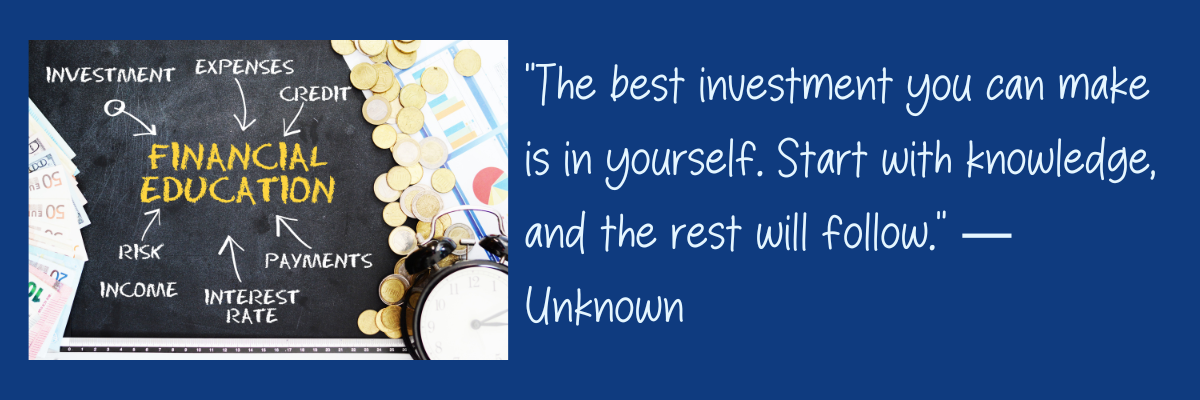
All this financial jargon can leave even the brightest of us feeling confused and overwhelmed. Social media, news outlets, and financial “gurus” often throw these terms around like confetti when they’re trying to sell you something or scare you into a decision.
When you’re working to reclaim your financial freedom by getting out of debt, the last thing you need is more confusion. Unfortunately, a lack of basic financial knowledge can make even the simplest decisions feel daunting. To make matters worse, many businesses are eager to “help”—for a fee.
Let’s break it down and start taking control of your financial future.
How did we, as a society, get to a point where money feels like a mystery?
Blame the 80s. That’s when credit cards, rent-to-own, and layaway programs began making it easier than ever to spend money we didn’t have. The attitude was, “As long as you can afford the payments, you deserve it.” But behind the scenes, people were leveraging debt to an unsustainable degree.
And then came the secrecy. Baby Boomers were caught between spending freely and hiding those decisions from their parents—members of the Greatest and Silent Generations, who lived through the Great Depression and didn’t approve of debt.
The result? A culture where money management was kept quiet. Add to that a world primed for consumerism and, well, the future didn’t seem all that urgent. (Hello, 80s nuclear Armageddon fears!)
But now that we’re living in the future, it’s time to pull back the curtain and face our finances head-on.
Let’s talk about education—or the lack thereof.
Many high school graduates struggle with basic financial skills like balancing a checkbook or calculating loan interest because financial literacy isn’t consistently taught in schools. While 70% of high school students might learn about checking and savings accounts, critical skills like understanding loans, interest, and debt management often fall through the cracks. (CheckWorks)
Only 34% of parents report teaching their kids how to balance a checkbook, and just 18% of teens feel they’ve learned essential money management skills. (Balancing Everything) That leaves many young adults woefully unprepared for real-world financial decisions, which helps explain why living paycheck to paycheck is so common.
The good news? You don’t have to navigate this alone.
A financial coach focuses on education, goal-setting, and habit-building. They’ll teach you budgeting, saving, and debt reduction strategies—while also explaining tricky financial terms in simple language. Unlike financial advisors, coaches don’t push investment products; they help you take control of your everyday finances.
A good financial coach is like a friendly guide through the financial wilderness. They provide a safe, judgment-free space to ask questions, learn at your own pace, and figure out the best approach for your situation.
When you understand your money, confidence follows. Without that confidence, even if you manage to pay off debt, it’s easy to fall back into old habits.
Some people turn to debt consolidation companies, which can combine your debts into one loan or payment plan, sometimes with lower interest. But there are trade-offs. You’ll likely pay fees, and you could end up with a longer repayment period, paying more in the long run. Most importantly, these services don’t address the behaviors that led to the debt in the first place.
Contrast that with a personalized debt repayment plan from a financial coach. You’re doing the work, learning as you go, with the guidance and accountability needed to stay on track. You’ll end up with a budget that works for you, the flexibility to adapt when needed, and, most importantly, a clear understanding of how to stay debt-free.
I’ve experienced this firsthand! My husband and I paid off over $3,700 in four weeks by reworking our budget and selling some things we didn’t need. Four months later, we knocked out a $9,000 car loan! Each “Discharge of Debt” letter was a victory, and the feeling was unbeatable.
There are countless resources out there, but not all are created equal. Here are a few tips when seeking financial education:
Need a place to start? Try “Total Money Makeover” by Dave Ramsey. It’s an excellent introduction to getting out of debt and available for under $15 on Amazon or at your local library.
As Maya Angelou wisely said, “Do the best you can until you know better. Then, when you know better, do better.”
Financial literacy doesn’t just help you get out of debt—it sets you up for long-term wealth-building. Learning about debt consolidation companies, savings options, and smart investments will pay off in the future.
Gaining financial knowledge is one of the easiest, most valuable investments you can make in yourself. Every bit of understanding helps!
With the right guidance and support, overcoming a lack of financial knowledge is 100% achievable. Book your free consultation with Altitude Financial Coaching today and take the first step toward debt freedom.